B2B Sales Guide: Definition, Strategies, and Successful Examples
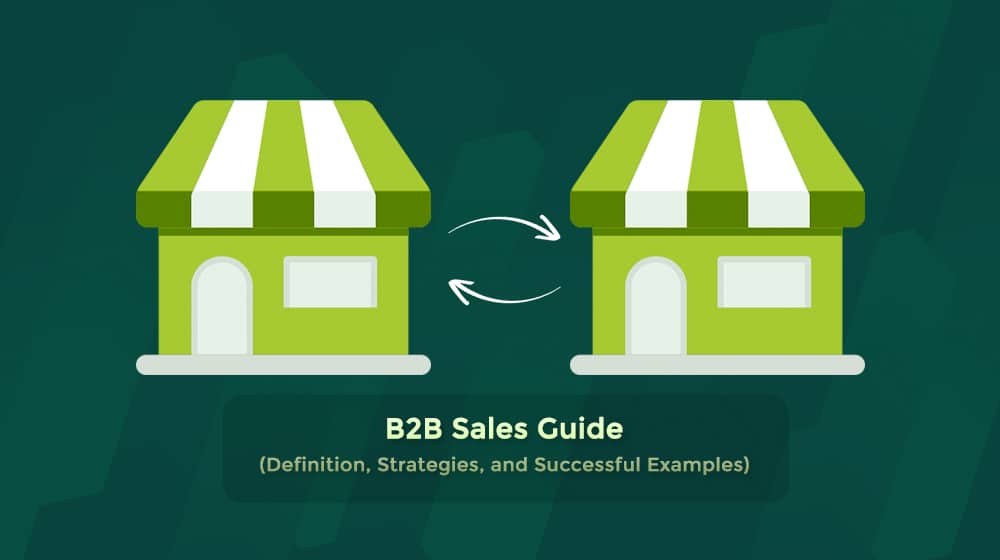
B2B sales is a critical part of online commerce, but there are a lot of people – even people who run businesses – who don't quite know what it is or how it works.
Since my business is solely B2B, I figured I would take the time to give you all a basic rundown of what it is, how it works, and some examples of it in action.
Let's start, shall we?
 30 Second Summary
30 Second Summary
You need to know B2B (Business to Business) transactions are different from B2C (Business to Consumer) sales. When you sell to businesses, you'll work with multiple decision-makers and handle larger deals that take more time to close. You'll usually need to reach out to potential clients directly, rather than waiting for them to find you. Your success depends on targeting specific niches, doing thorough research about your clients and proving your value with both inside sales (remote) and outside sales (in-person) methods.
The Definition of B2B
In commerce, there are two kinds of sales: B2B and B2C. These stand for Business to Business and Business to Consumer.
1. Business to Consumer is what you're likely most familiar with. When you go to the grocery store and shop for food, that's a business selling a product to a consumer (you). If you buy an item on Amazon, that's typically a B2C sale.
2. Business to Business sales happen all the time, but many of them are invisible to the typical consumer. You don't wonder where the food in the grocery store comes from, but the grocery store doesn't make it themselves, they buy it from the manufacturer, which is itself another business.
A tech company offering a business app, like Salesforce, is a B2B relationship. They're a business selling a product (access to their platform) to other businesses. Me, selling content marketing services to other businesses, is another example of a B2B relationship.
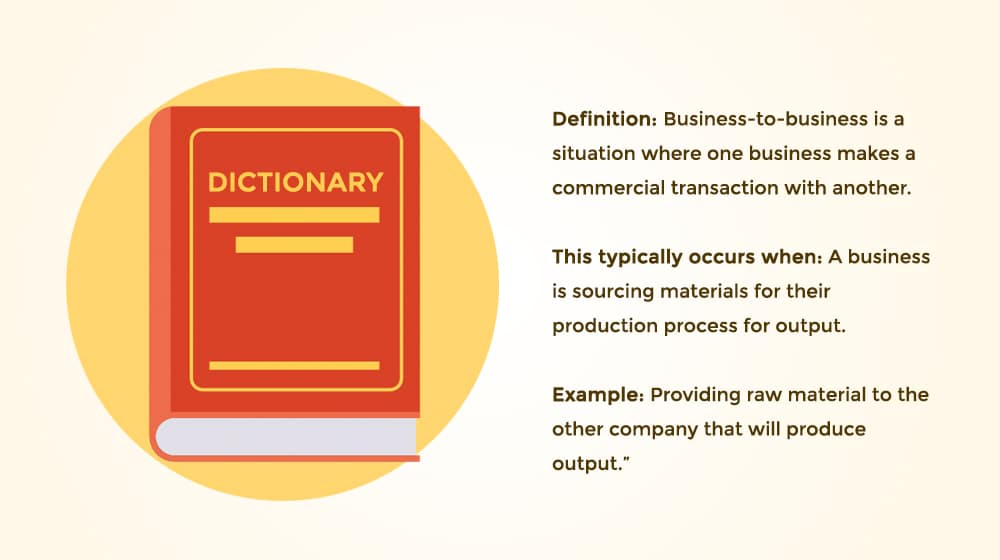
Here's the Wikipedia definition:
"Business-to-business is a situation where one business makes a commercial transaction with another. This typically occurs when: A business is sourcing materials for their production process for output. Example: Providing raw material to the other company that will produce output."
There are some major differences between B2B and B2C that make B2B potentially more complicated.
- Oftentimes, more people are involved in the decision. When you sell a product to a person, you might have to convince them, and maybe a spouse or a parent or a roommate. When you sell a product to a business, you might need to convince an entire executive team, a board of directors, a budget committee, or who knows how many other people.
- Transactions are often larger. You can sell a B2C product for $1 at a check lane. B2B sales are often annual contracts, bulk contracts, large orders, or package deals. Granted, small businesses might not be much larger than individual purchases, but enterprise-level sales can be massive.
- It takes longer. When I get a new lead, it can take months of calls, conversations, and proposals before I land the contract. In larger-scale businesses, it can take half a year, a year, or more to close a large deal. There's no such thing as a B2B impulse buy.
- Pricing and payments can be different. In B2B sales, there is often room for negotiation. Pricing can be fluid, benefits and bonuses can be arranged, and pricing is often deferred. B2B sales often are not paid until the product is received and an invoice sent.
B2B sales are also often seller-to-buyer, rather than the other way around.
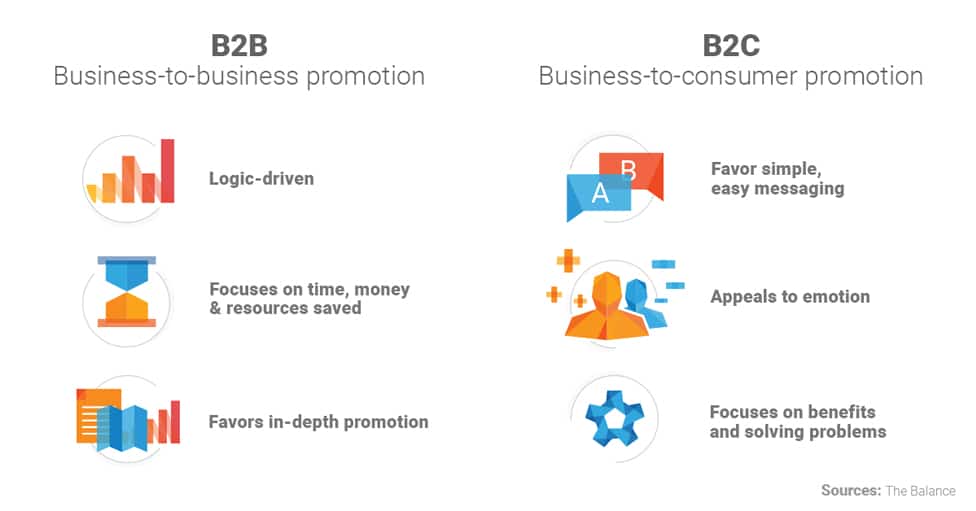
In a B2C sale, you as a consumer recognize that you need something (be it food, a tool, a piece of entertainment media, a piece of furniture, or what have you) and you start doing your research. You look for brands that make that product, you research different types of products, you pick the kind of product you want, you start comparing price and feature differences, you look for different vendors with different sales, and you pick the best option to buy. It's all self-motivated, though it's informed by advertising, SEO, and other sales techniques that put that information in front of you.
In B2B, oftentimes the seller comes to you. The seller comes up with a value proposition and comparisons between themselves and their competitors. They do all of that groundwork and research for you. Then they research to identify potential customers, businesses in their niche who might require their services. They reach out and submit a proposal for your perusal.
Of course, it's not always that proactive. A small business might know they need a budgeting platform for their HR team and might put together a list of companies that offer that service and browse through their service pages to build a features list and pros/cons list. It goes both ways.
B2B Strategies
Success with B2B sales depends on the strategies you're using. There are as many different strategies as there are businesses out there, but they can broadly be condensed into a handful of typical efforts. I've tried to give a general framework of possible strategies here, but keep in mind that they can always be customized for your business, your niche, and your customers.
1. Inside vs Outside Sales. One decision you'll have to make is whether you're going to be using inside sales techniques, outside sales techniques, or a mixture of both.
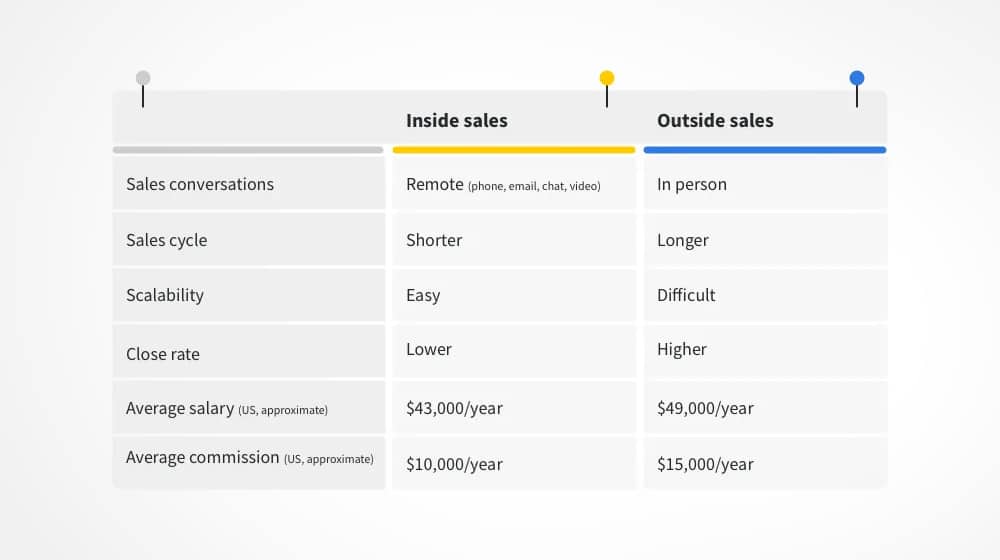
(Image credits: Pipedrive)
Inside sales are sales coming from inside your house. You have sales teams who do research, build proposals, look for potential customers, and reach out to them. All from the "comfort" of your own offices.
Outside sales are people who go out into the field, who spend time at the offices of your potential customers, who talk to people face to face, look into their processes and how they work, and discuss customized, hands-on ways to improve those processes.
Both can be effective, and a lot depends on your niche, how invasive an outside sales process would be, and how receptive your customers are to sales tactics. There's no one right answer here.
2. Foundational Research. A key component in every good B2B sales process is research. Just like how a B2C business will have buyer personas and customer profiles, B2B businesses also need profiles and personas for potential clients. For example, I know the general sizes, industries, and styles of businesses that I usually work with, who I prefer to work with, and for whom I can provide the best content.
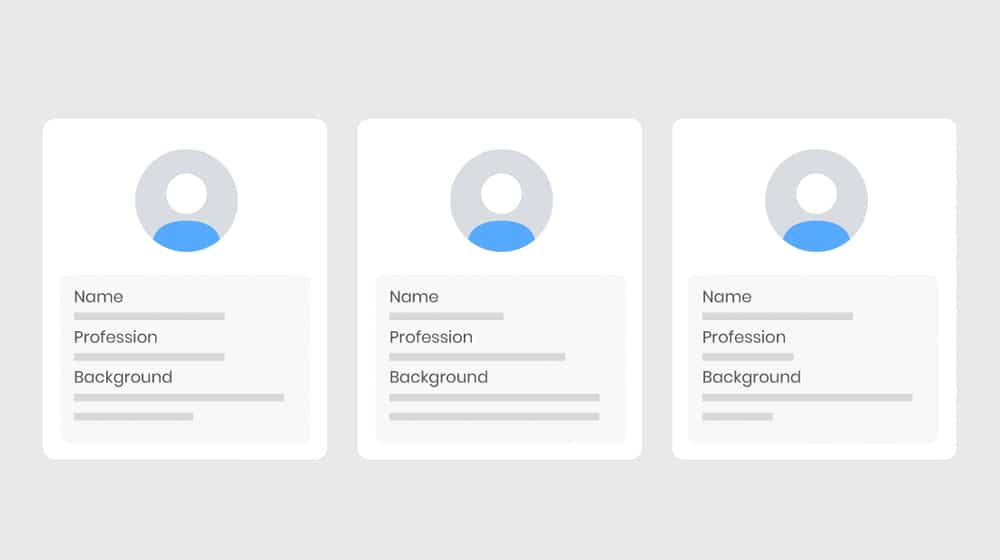
Research involves three elements.
- Internal research. What do you offer? What makes you different from your competition? What value do you bring to the table for a client?
- Competitive research. What companies are already operating in your space, and how can you compete? What do you offer that they do not? What is your unique selling proposition?
- Customer research. What businesses are you most likely to work with? Are they large or small? What competitors are they likely working with already? Do you have connections within their teams? This is where the bulk of your research will go.
Just like buyer personas, you can build a customer profile for potential client business. You can put together specific profiles for the individual decision-makers within the company as well. What are their demographics, their goals (both personal and professional), what are their primary concerns?
3. Niche Targeting. Research shows that, in the modern-day business world, the most successful new businesses are narrow specialists. Gone are the days where you can start a company that produces "paper products" and make everything from toilet paper to sticky notes.
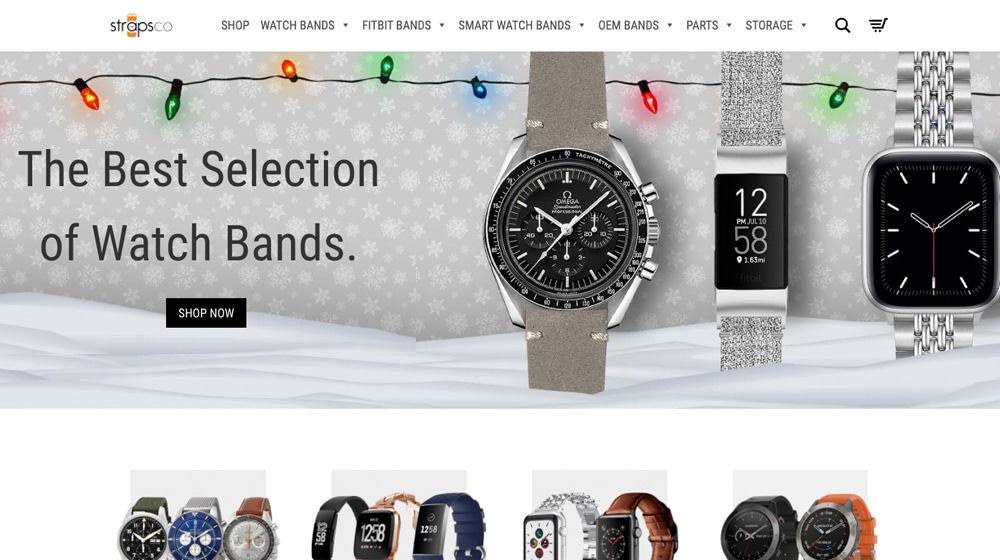
This is important to know for two reasons. The first is that you need to be specialized. It's why you see, for example, SEO specialists who work entirely with real estate brokers, or content writers who only work for brands that write tech-focused articles. This allows you to leverage highly specialized knowledge of the industry, and to beat out competitors who are either not focused on the same niche, or who are trying to be more generalist and don't have the specific knowledge necessary to prove their value.
The second is that your clients are going to be specialized. You might work with a company that does nothing but sell LED headlights, or a company that does nothing but sell services as a reputation management company. Offering your unique skills to them, with a focus on how you know their industry and can provide customized services, is crucial.
4. SEO. Search engine optimization is the lifeblood of most modern online commerce. Being visible in Google's search results is critical.

Why? Well, think about it. When you're doing your research, for anything, business or personal, where do you start? Unless you're already very knowledgeable about the subject, you're going to start with a search engine. It might be YouTube, it might be Amazon, or it might be Google, but it's going to be a search engine.
Thus, one of the best strategies for selling to businesses is being among those top results when a business starts looking for the services you offer. It's why I spend so much effort writing on my blog, for example; when someone searches for a content marketing agency, I want to be one of the first they find.
5. Social Media. You might not think that social media is a viable strategy for B2B selling, but why not? You use social media. So, too, do the people who run businesses. The key mistake people make in thinking about is that they're trying to market towards business pages.
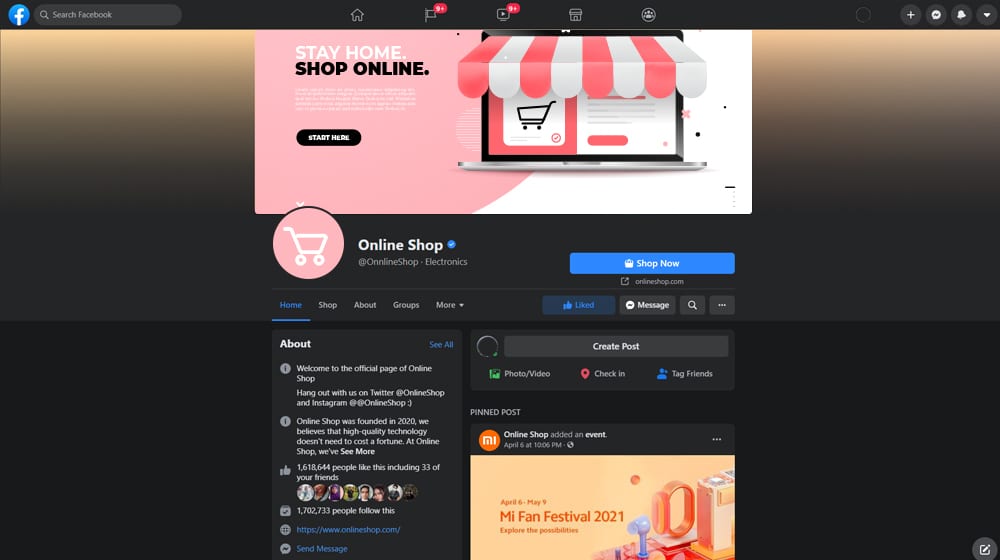
The truth is, you're not; you're marketing towards business owners and decision-makers who use the platforms on their own time. It's a subtle difference, but it's a big one. Social media is a great channel for building awareness and for reaching the people who can make decisions when they're most receptive.
Examples of B2B Strategies In Action
Now let's take a look at a few examples of B2B strategies in action. Here are some companies that are doing it right.
1. HubSpot. HubSpot is an inbound marketing and sales company. They specialize in B2B marketing, sales, and service through their platform. How do they market it? Well, a variety of different ways, but one of the biggest is definitely through SEO.
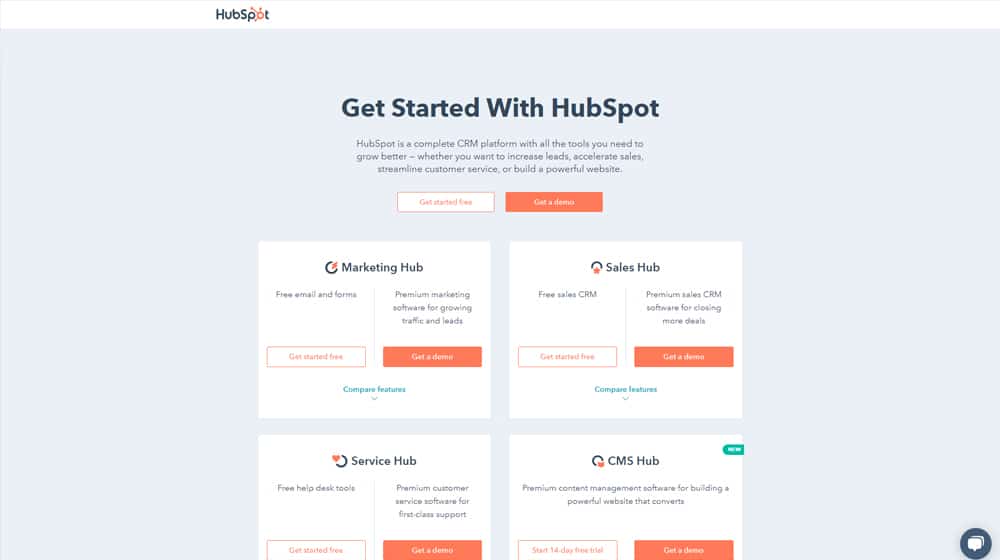
Any time you have a question about anything related to marketing or sales, you can search that question on Google and I guarantee you that HubSpot is going to have a blog post somewhere in the top ten results.
How do they accomplish this? Through a long-running campaign of SEO and content marketing. They prove they're experts in their field by putting their tips into action, and thus being among the first companies you find when you're looking. A ton of research goes into every post they write, and they write a lot of them.
2. BulkBookstore. BulkBookstore is exactly what it sounds like on the tin. These days, Amazon completely dominates the B2C space, and everyone else has to fight over scraps using niche tactics and narrow targeting. BulkBookstore did this by picking a B2B niche for bookselling, right under Amazon's nose.
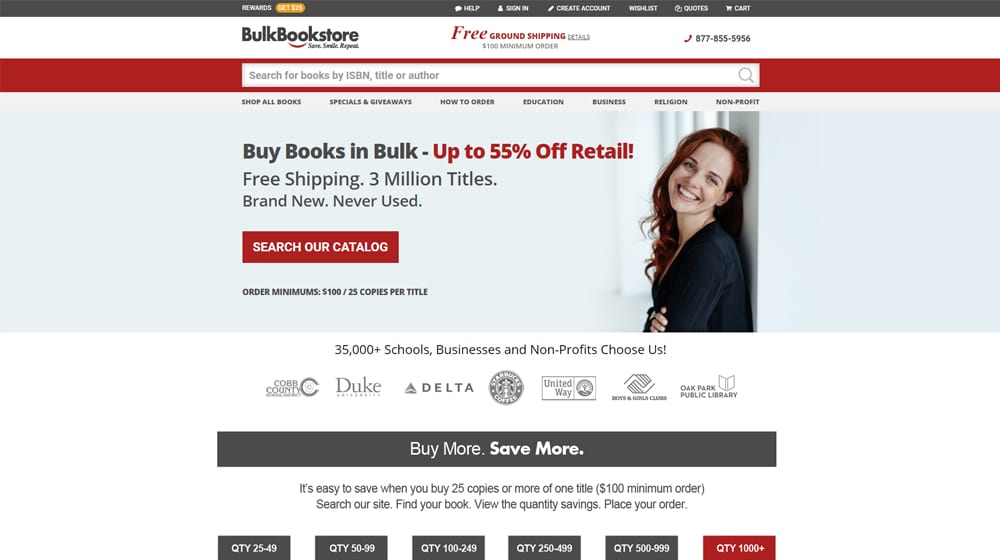
Think about different reasons why you might need bulk orders of books. You might be a retailer selling copies of those books. You might be running a conference and plan to hand out a copy to every attendee. You might be a school and need a copy for every student.
Whether you need 25 copies of a book or 2,500, you can get them in one purchase through this company; they fit a variety of needs within the single niche of bulk books.
3. Herman Miller. Herman Miller is one of the go-to names in office furniture. Their chairs are renowned throughout the country and around the world as top-of-the-line furniture for any office. They sell individually to home office users but primarily focus on working with businesses to outfit entire offices.

Herman Miller focuses on its value proposition above all else. Their chairs are the product of years of careful engineering and study. The products they create are long-lived, backed by warranties, durable, resilient, and comfortable for hours spent working. Overall, they know what they have to sell; premium goods in the office furniture space. Their marketing is focused on presenting that value proposition, often to the CEOs and executives responsible for setting up a startup's office.
Wrapping Up
I know I haven't gone too deep into a lot of this. There's an entire world of B2B marketing out there, and I've only scratched the surface here, but that's fine. It's better to give you a brief introduction than it is to overwhelm you and drive you away, after all.
Thankfully, I've written many B2B posts to expand on some of these strategies:
There's a lot of overlap between B2B and B2C sales techniques, with just a few key differences and a few more zeroes on the end of the invoices.
Did you learn anything? Do you have any questions for me? Let me know in the comments section! Believe it or not, I reply to every thoughtful (and non-spammy) comment I receive here. Ask away!



 30 Second Summary
30 Second Summary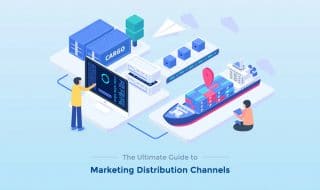
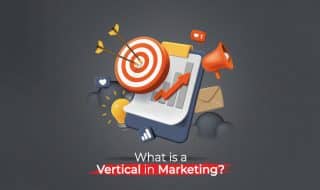


June 08, 2021
hi, thank you for this useful content!
June 08, 2021
Hey Vanessa, thanks for your comment, I'm happy you enjoyed it 🙂
March 20, 2022
Exactly what I needed. Thanks!
March 25, 2022
Thanks, Celia! Happy to hear that.
April 28, 2022
Thank you for the information! I sell products on Facebook and installed a browser extension to save time. It automatically sends messages to users and can add them as friends. I advise you to try and make sure.
April 29, 2022
Hey Tom, thanks for sharing! I'm glad that strategy is working out for you.